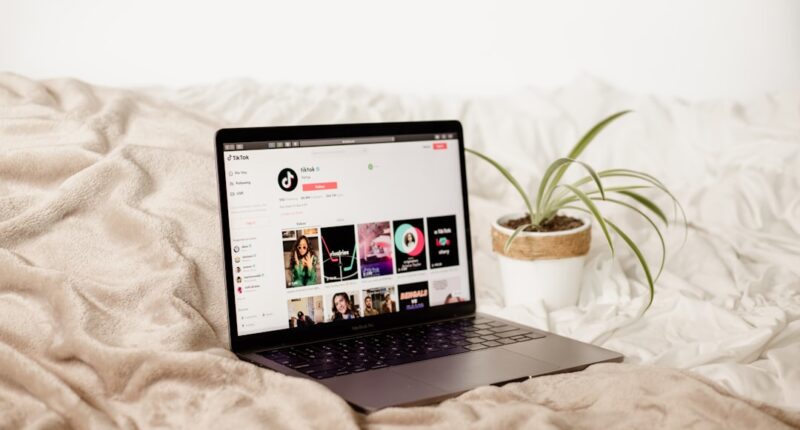Influencer marketing has emerged as a powerful tool for brands looking to connect with their target audiences in a more authentic and engaging manner. On platforms like Spotify, where music and podcasts dominate, influencers can play a pivotal role in shaping consumer perceptions and driving brand loyalty. Spotify’s unique environment allows influencers to curate playlists, share personal stories, and engage with their followers through audio content, creating a more intimate connection than traditional advertising methods.
This form of marketing leverages the trust that influencers have built with their audiences, allowing brands to tap into established communities and reach potential customers in a way that feels organic and relatable. The rise of streaming services has transformed how consumers interact with music and audio content, making influencer marketing on Spotify particularly relevant. Unlike conventional advertising, which often interrupts the user experience, influencer marketing seamlessly integrates into the listening habits of users.
Influencers can recommend products or services while discussing their favorite tracks or podcasts, making the promotion feel like a natural extension of their content. This approach not only enhances brand visibility but also fosters a sense of community among listeners who share similar interests. As brands seek to navigate this dynamic landscape, understanding the nuances of influencer marketing on Spotify becomes essential for crafting effective campaigns that resonate with audiences.
Key Takeaways
- Understanding Influencer Marketing on Spotify:
- Influencer marketing on Spotify involves collaborating with popular users to promote your brand or products to their followers.
- It can help increase brand awareness, reach new audiences, and drive engagement on the platform.
- Identifying the Right Influencers for Your Brand:
- Look for influencers whose audience aligns with your target demographic and brand values.
- Consider factors such as engagement rate, follower count, and content relevance when choosing influencers.
- Leveraging Spotify’s Features for Influencer Marketing:
- Utilize Spotify’s playlist and podcast features to integrate influencer content seamlessly.
- Take advantage of Spotify’s targeting options to reach specific audiences with influencer campaigns.
- Creating Engaging Content for Influencer Campaigns:
- Encourage influencers to create authentic and relatable content that resonates with their followers.
- Incorporate storytelling and interactive elements to make the content more engaging.
- Measuring the Success of Your Influencer Marketing Strategy:
- Track key metrics such as reach, engagement, and conversions to evaluate the effectiveness of influencer campaigns.
- Use Spotify’s analytics tools to gain insights into the performance of influencer content.
Identifying the Right Influencers for Your Brand
Finding the right influencers to represent your brand on Spotify is crucial for the success of your marketing efforts. The first step in this process involves conducting thorough research to identify influencers whose values align with your brand’s mission and target audience. This means looking beyond mere follower counts and considering factors such as engagement rates, audience demographics, and content style.
An influencer with a smaller but highly engaged following may be more effective than one with a large but passive audience. By focusing on influencers who genuinely connect with their listeners, brands can ensure that their message is delivered authentically and resonates with potential customers. Once you have identified potential influencers, it is essential to evaluate their previous collaborations and content to gauge their effectiveness in promoting brands.
Analyzing how they integrate sponsored content into their playlists or podcasts can provide valuable insights into their approach and creativity. Additionally, reaching out to influencers for initial conversations can help establish rapport and determine if they are genuinely interested in your brand. Building a relationship based on mutual respect and shared values will not only enhance the authenticity of the campaign but also increase the likelihood of successful collaboration.
Leveraging Spotify’s Features for Influencer Marketing

Spotify offers a variety of features that brands can leverage to enhance their influencer marketing campaigns. One of the most effective tools is the ability to create branded playlists curated by influencers. These playlists can feature songs that resonate with the brand’s identity or themes related to specific campaigns.
By collaborating with influencers to create these playlists, brands can tap into their followers’ listening habits while providing value through curated content. This not only increases brand visibility but also encourages listeners to engage with the brand in a more meaningful way. In addition to playlists, Spotify’s podcasting capabilities present another avenue for influencer marketing.
Influencers can host or guest on podcasts that align with your brand’s values, discussing topics relevant to your products or services. This format allows for deeper storytelling and engagement, as listeners often feel a personal connection to podcast hosts. Brands can sponsor episodes or collaborate on special segments that highlight their offerings, creating an immersive experience for listeners.
By utilizing these features effectively, brands can create multifaceted campaigns that resonate with audiences across different formats.
Creating Engaging Content for Influencer Campaigns
| Metrics | Data |
|---|---|
| Engagement Rate | 5.2% |
| Click-Through Rate | 3.8% |
| Shares | 1200 |
| Comments | 500 |
The success of influencer marketing on Spotify hinges on the creation of engaging content that captivates listeners and encourages them to take action. To achieve this, brands should work closely with influencers to develop content that feels authentic and aligns with their unique voice. This could involve crafting compelling narratives around the brand’s story or integrating product mentions into discussions about music or lifestyle topics.
The key is to ensure that the content does not come across as overly promotional; instead, it should feel like a natural part of the influencer’s regular output. Moreover, incorporating interactive elements into the content can significantly enhance listener engagement. For instance, influencers could host Q&A sessions or encourage their followers to share their own experiences related to the brand’s products.
This not only fosters a sense of community but also provides valuable feedback for brands looking to refine their offerings. Additionally, utilizing Spotify’s social sharing features allows influencers to promote their content across other platforms, further amplifying reach and engagement. By prioritizing creativity and interactivity in content creation, brands can maximize the impact of their influencer marketing campaigns.
Measuring the Success of Your Influencer Marketing Strategy
To determine the effectiveness of your influencer marketing strategy on Spotify, it is essential to establish clear metrics for success from the outset. Key performance indicators (KPIs) may include engagement rates, listener growth, playlist additions, and conversion rates related to specific campaigns. By tracking these metrics over time, brands can gain valuable insights into how well their campaigns are resonating with audiences and make data-driven decisions for future initiatives.
Additionally, utilizing Spotify’s analytics tools can provide detailed information about listener demographics and behavior, allowing brands to refine their targeting strategies. Beyond quantitative metrics, qualitative feedback is equally important in assessing campaign success. Gathering listener feedback through surveys or social media interactions can provide insights into how audiences perceive the influencer’s message and its alignment with the brand.
This feedback loop not only helps brands understand what resonates with their audience but also fosters a sense of community among listeners who feel valued for their opinions. By combining quantitative data with qualitative insights, brands can develop a comprehensive understanding of their influencer marketing efforts and continuously improve their strategies.
Building Long-Term Relationships with Influencers

The Importance of Long-Term Relationships in Influencer Marketing
Establishing long-term relationships with influencers is crucial for achieving sustainable success in influencer marketing on Spotify. Rather than viewing collaborations as one-off projects, brands should aim to cultivate ongoing partnerships that evolve over time. This approach allows for deeper storytelling and more authentic connections between influencers and their audiences.
Building Trust and Credibility through Consistency
By consistently working with the same influencers, brands can build trust and credibility within specific communities, leading to increased brand loyalty among listeners. To foster these long-term relationships, brands should prioritize open communication and collaboration throughout the partnership. Regular check-ins and feedback sessions can help ensure that both parties are aligned on goals and expectations.
Nurturing a Strong Bond between Brands and Influencers
Recognizing and celebrating the influencer’s contributions—whether through shout-outs on social media or exclusive access to new products—can strengthen the bond between the brand and influencer. By investing in these relationships, brands can create a network of advocates who are genuinely passionate about promoting their offerings.
Incorporating User-Generated Content into Your Strategy
User-generated content (UGC) is an invaluable asset in any influencer marketing strategy on Spotify. Encouraging listeners to share their experiences with your brand not only amplifies your message but also fosters a sense of community among fans. Influencers can play a crucial role in this process by inviting their followers to submit playlists featuring your products or sharing personal stories related to your brand’s offerings.
This approach not only enhances engagement but also provides authentic testimonials that resonate with potential customers. Incorporating UGC into your strategy also allows for greater creativity in content creation. Brands can curate user-generated playlists or highlight listener stories in collaboration with influencers, showcasing real-life experiences that align with the brand’s identity.
This not only enriches the content but also empowers listeners by giving them a platform to share their voices. By embracing UGC as part of your influencer marketing strategy on Spotify, you can create a more inclusive and engaging experience for your audience.
Staying Up-to-Date with Spotify’s Latest Features and Trends
The digital landscape is constantly evolving, and staying informed about Spotify’s latest features and trends is essential for maximizing the effectiveness of your influencer marketing strategy. Regularly exploring new tools and functionalities offered by Spotify can provide fresh opportunities for engagement and creativity in your campaigns. For instance, features like Spotify Canvas allow artists and influencers to create short looping videos that accompany tracks, providing an innovative way to capture listener attention while promoting products or services.
Additionally, keeping an eye on emerging trends within the music and podcasting industries can inform your influencer marketing strategies. Understanding shifts in listener preferences or popular genres can help brands tailor their campaigns to align with current interests. Engaging with industry news through blogs, podcasts, or webinars can provide valuable insights into best practices and innovative approaches used by other successful brands.
By remaining adaptable and informed about Spotify’s evolving landscape, brands can ensure that their influencer marketing efforts remain relevant and impactful in an ever-changing environment.









